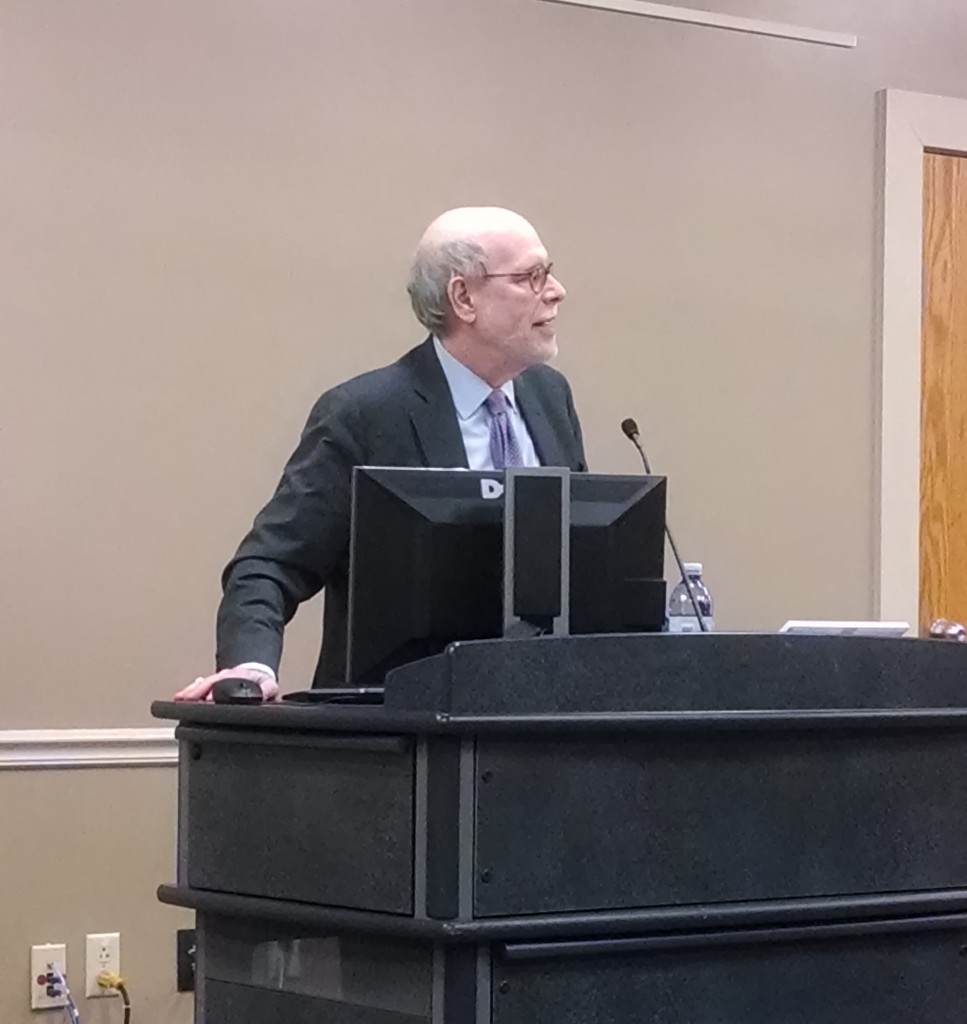Harold Holzer talks censorship and media at Lincoln Lyceum
By Annika Jensen, Web Editor
Distinguished scholar and lecturer Harold Holzer delivered the 2016 Lincoln Lyceum on Wednesday, Feb. 23. Holzer spoke about his latest book, Lincoln and the Power of the Press: The War for Public Opinion, and addressed the question of whether the 16th president was a master or a monster when it came to the media.
After cracking a few jokes about some notable absences in the audience, namely Dr. Allen Guelzo and Dr. Peter Carmichael, Holzer began by delving into the world of partisan journalism in the Civil War era and inviting his audience to imagine the press culture of the mid-19th century. He described the media at this time as having no shame about their agenda; newspapers were open about their opinions, and most major cities had a paper for each political party. The Lincoln-Douglas debates were particularly up for press interpretation.
Holzer described that with the inception of the Civil War, however, the actions taken by the Lincoln administration and the Union army against newspapers were overtly anti-war and anti-draft: about 200 newspapers in Northern and border states were suppressed by the federal government in all. The turning point in the attitude of the Lincoln administration, Holzer claimed, was the First Battle of Bull Run, after which the president and his cabinet took a stricter approach about indicting and shutting down Democratic newspapers; they wanted editors and writers that were pro-enlistment.
Life for the president thus became a series of challenges. Many writers and editors were imprisoned in army camps and faced military tribunals instead of civilian courts. One hundred and fifty four newspapers were placed on a watchlist because they presented anti-war sentiments. Moreover, top generals like William T. Sherman banned reporters from his camps and even went as far as to court-martial some.
Holzer described that in his research, it was difficult to find any condemnation of the Lincoln administration’s censorship by Republican editors and concluded that Lincoln should not be condemned because of the uniqueness of civil war. The president was worried about traitors and spies, and it should be understood that he had to combat rebellion. While Lincoln should not be given a complete pass, Holzer reminded his audience that the press has never had, and will never have, complete freedom.
While the topic of his lecture was largely historical, Holzer alluded to contemporary controversy, namely Tim Cook and the current Apple debate. He also mentioned immigration and gave Donald Trump a sly quip, saying that “nobody built a wall” for immigrants in 1861.
Holzer is the author, co-author and editor of 52 books about Lincoln.

